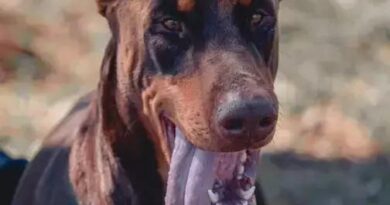What is Rivalidade
What is Rivalidade in Dogs?
Rivalidade, or rivalry, in dogs refers to the competitive behavior exhibited by canines when they perceive a threat to their resources, territory, or social standing. This behavior can manifest in various forms, including aggression, barking, and posturing. Understanding the nuances of rivalry is crucial for dog owners, trainers, and enthusiasts alike, as it can significantly impact the dynamics between dogs and their human companions.
The Causes of Rivalidade
Several factors contribute to the development of rivalry among dogs. These can include resource guarding, where a dog feels the need to protect food, toys, or even their human from perceived threats. Additionally, social hierarchies within a multi-dog household can lead to competition for status, resulting in rivalry. Understanding these causes is essential for addressing and managing such behaviors effectively.
Signs of Rivalidade in Dogs
Recognizing the signs of rivalry in dogs is vital for prevention and intervention. Common indicators include growling, snapping, and intense staring between dogs. Other signs may involve body language such as raised hackles, stiff posture, and excessive barking. Being aware of these behaviors can help dog owners take proactive measures to mitigate rivalry before it escalates into more serious aggression.
Managing Rivalidade Among Dogs
Effective management of rivalry among dogs often involves establishing clear boundaries and rules within the household. Training techniques such as positive reinforcement can help reinforce desired behaviors and reduce competitive tendencies. Additionally, providing separate resources, such as food bowls and toys, can minimize competition and promote a more harmonious environment for all dogs involved.
The Role of Socialization in Reducing Rivalidade
Socialization plays a crucial role in reducing rivalry among dogs. Exposing dogs to various environments, people, and other animals from a young age can help them develop confidence and reduce fear-based reactions. Proper socialization can lead to improved communication skills between dogs, making them less likely to perceive each other as rivals and more as companions.
Rivalidade and Dog Training
Incorporating rivalry awareness into dog training is essential for fostering a positive relationship between dogs and their owners. Trainers often emphasize the importance of teaching commands that promote calm behavior and discourage aggressive responses. Techniques such as desensitization and counter-conditioning can be effective in addressing rivalry-related issues, allowing dogs to learn more appropriate ways to interact with one another.
Impact of Rivalidade on Dog Behavior
The impact of rivalry on dog behavior can be profound, affecting not only the dogs involved but also their human companions. Dogs that exhibit rivalry may experience increased stress and anxiety, which can lead to other behavioral issues. Moreover, owners may find themselves in challenging situations, needing to manage conflicts between their pets. Understanding the implications of rivalry is essential for maintaining a healthy and balanced household.
Preventing Rivalidade in Multi-Dog Households
Preventing rivalry in multi-dog households requires careful planning and management. Owners should consider implementing structured routines that promote positive interactions among dogs. Regular training sessions, supervised playtime, and individual attention can help reduce competition and foster a sense of teamwork among canine companions. By prioritizing prevention, owners can create a more peaceful living environment.
When to Seek Professional Help
In some cases, rivalry among dogs can escalate to dangerous levels, necessitating professional intervention. If owners find themselves unable to manage aggressive behaviors or if the rivalry leads to injuries, it is crucial to seek the assistance of a qualified dog trainer or behaviorist. Professionals can provide tailored strategies and support to address rivalry effectively, ensuring the safety and well-being of all dogs involved.




